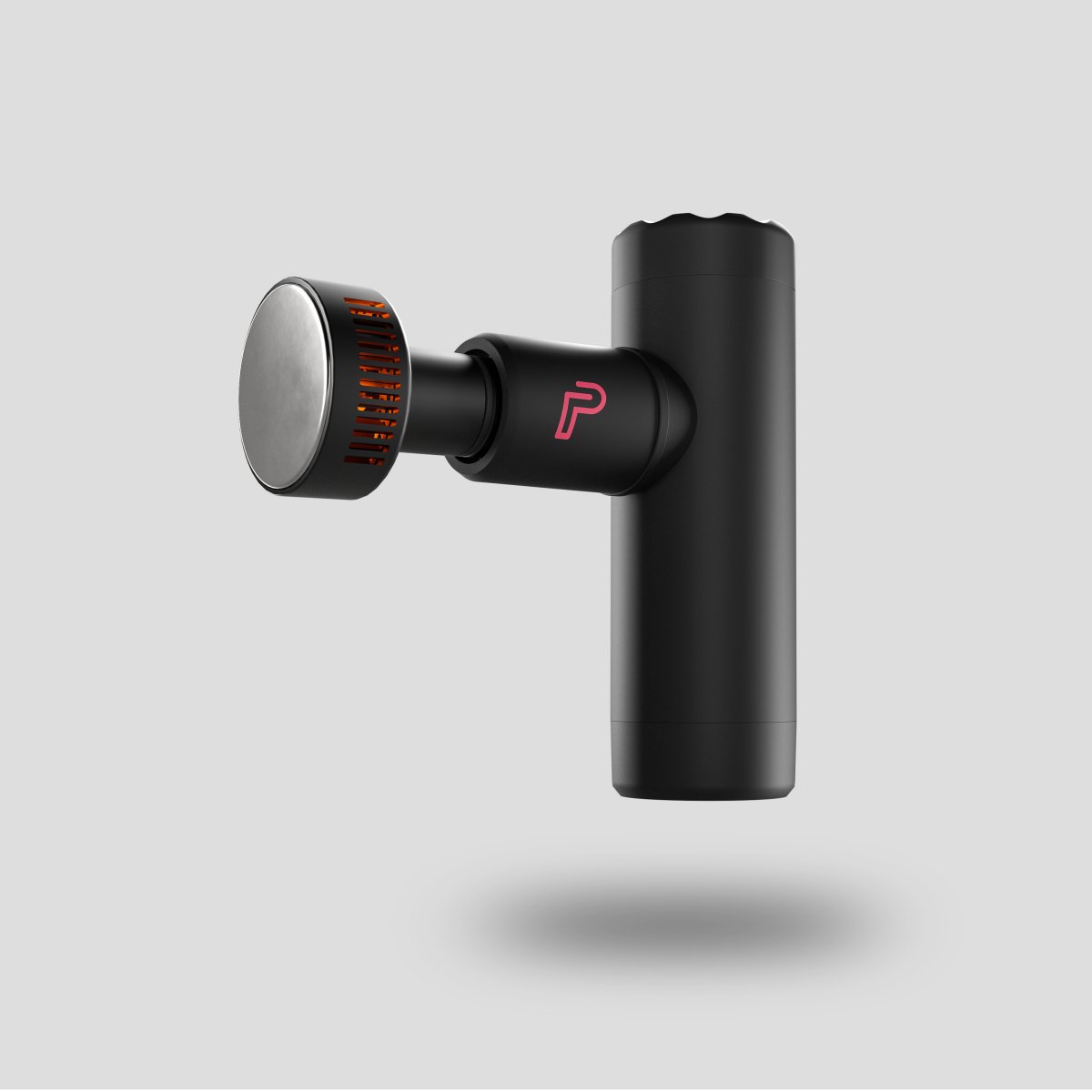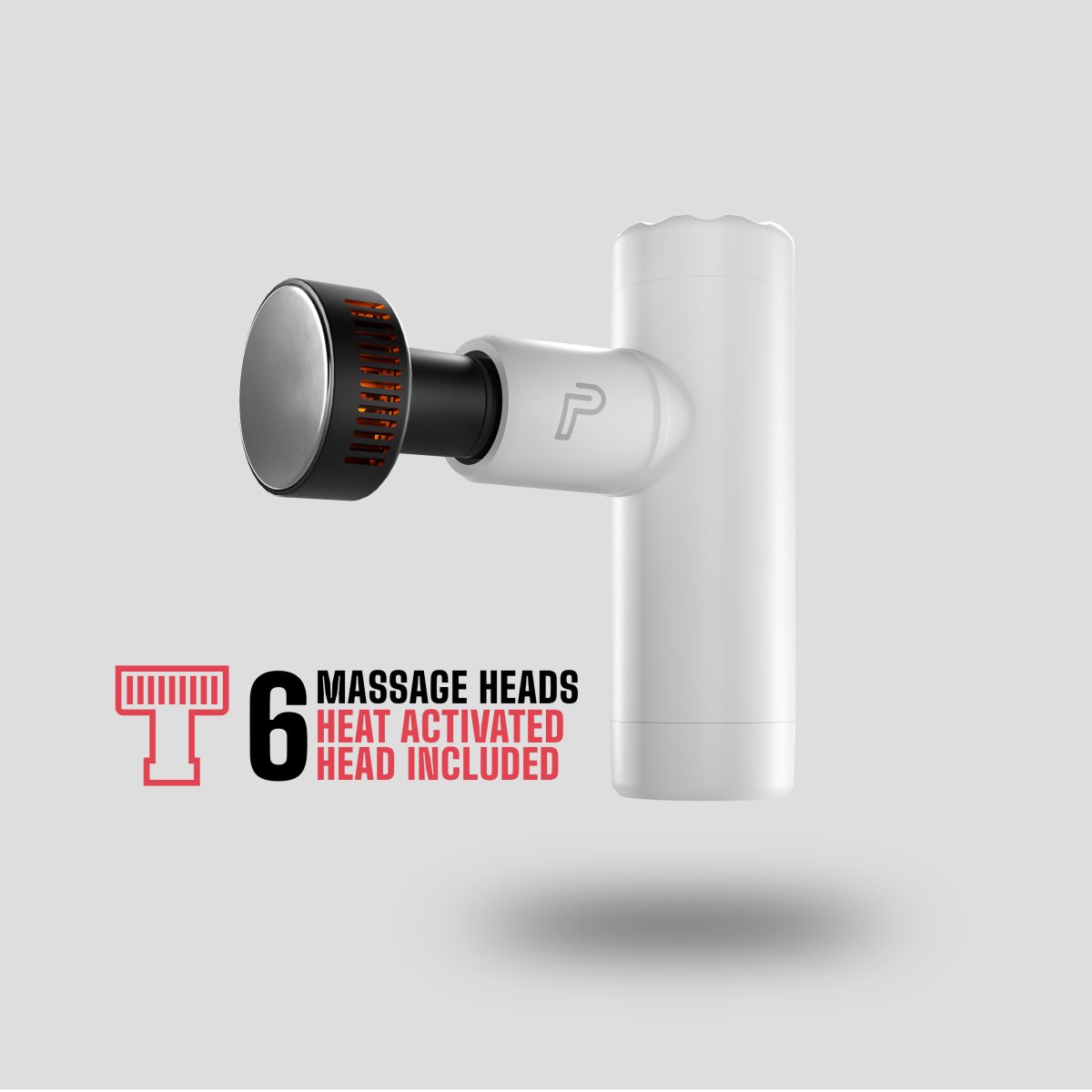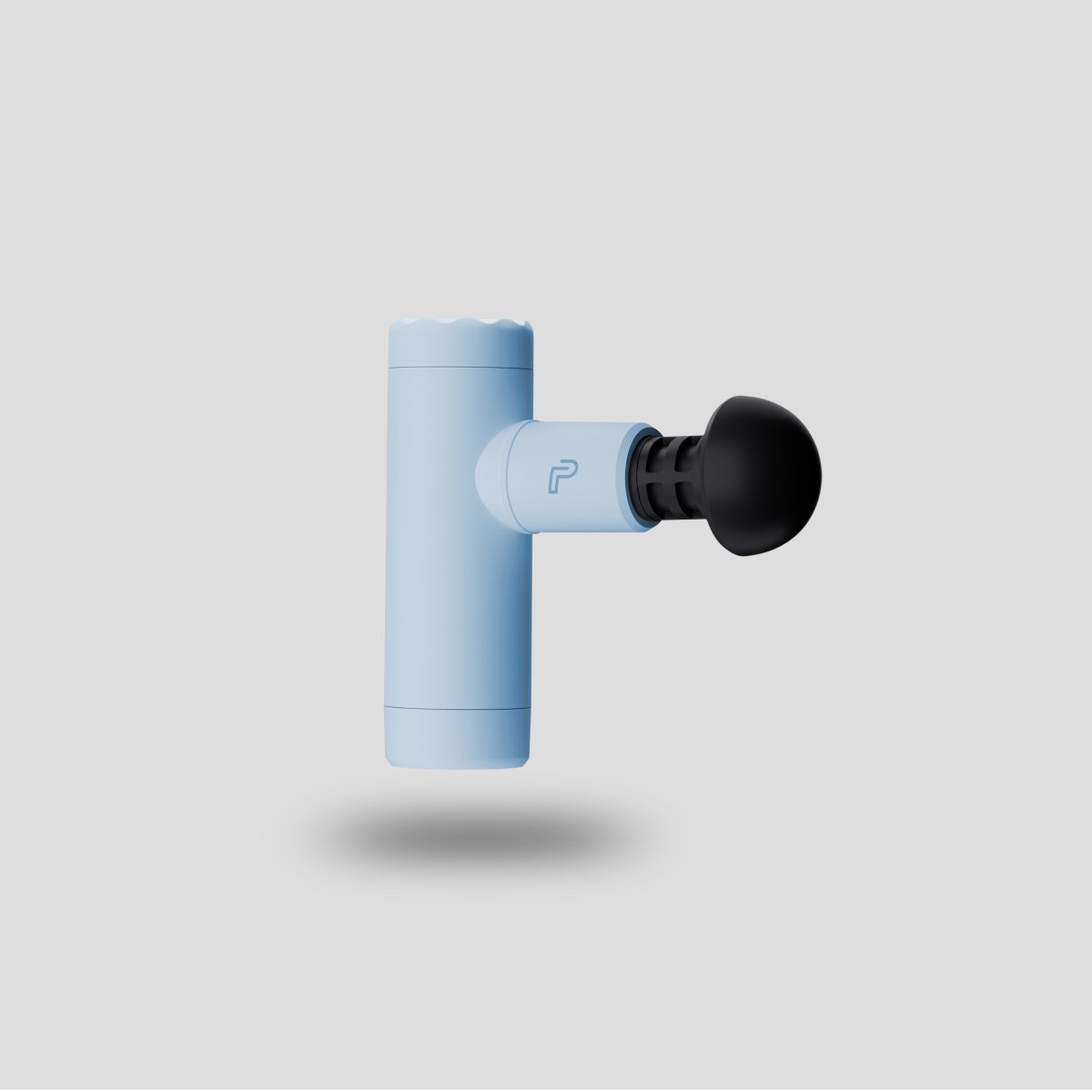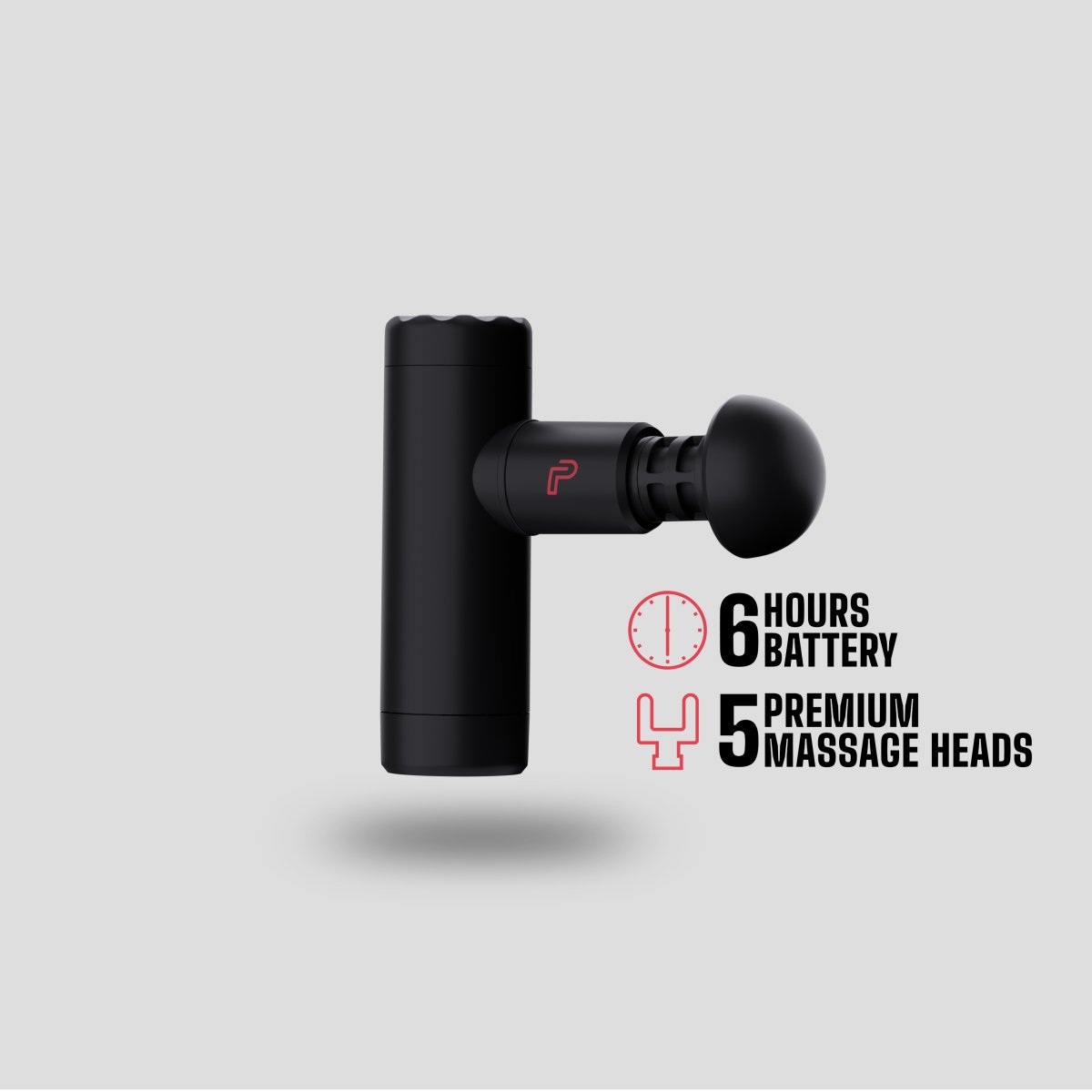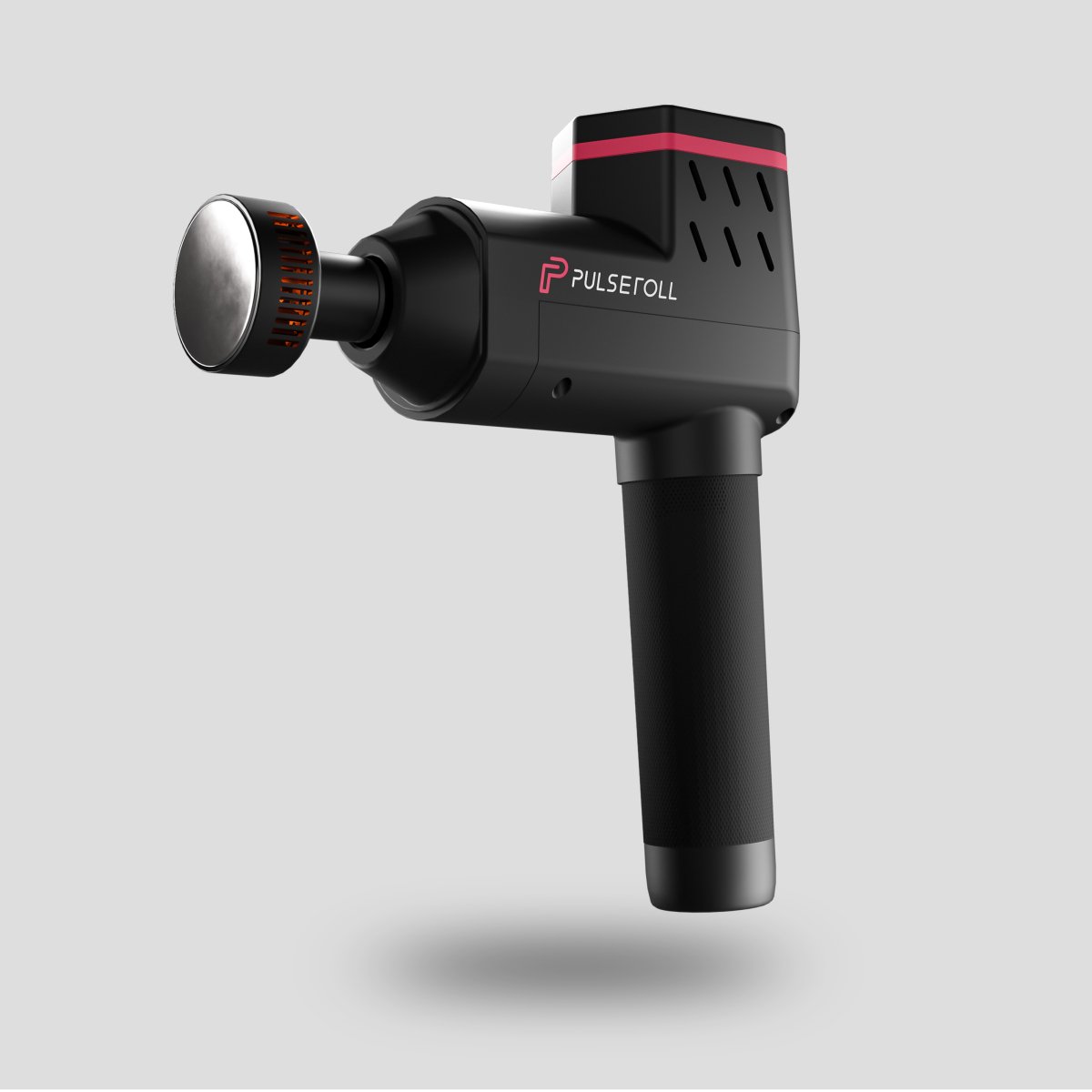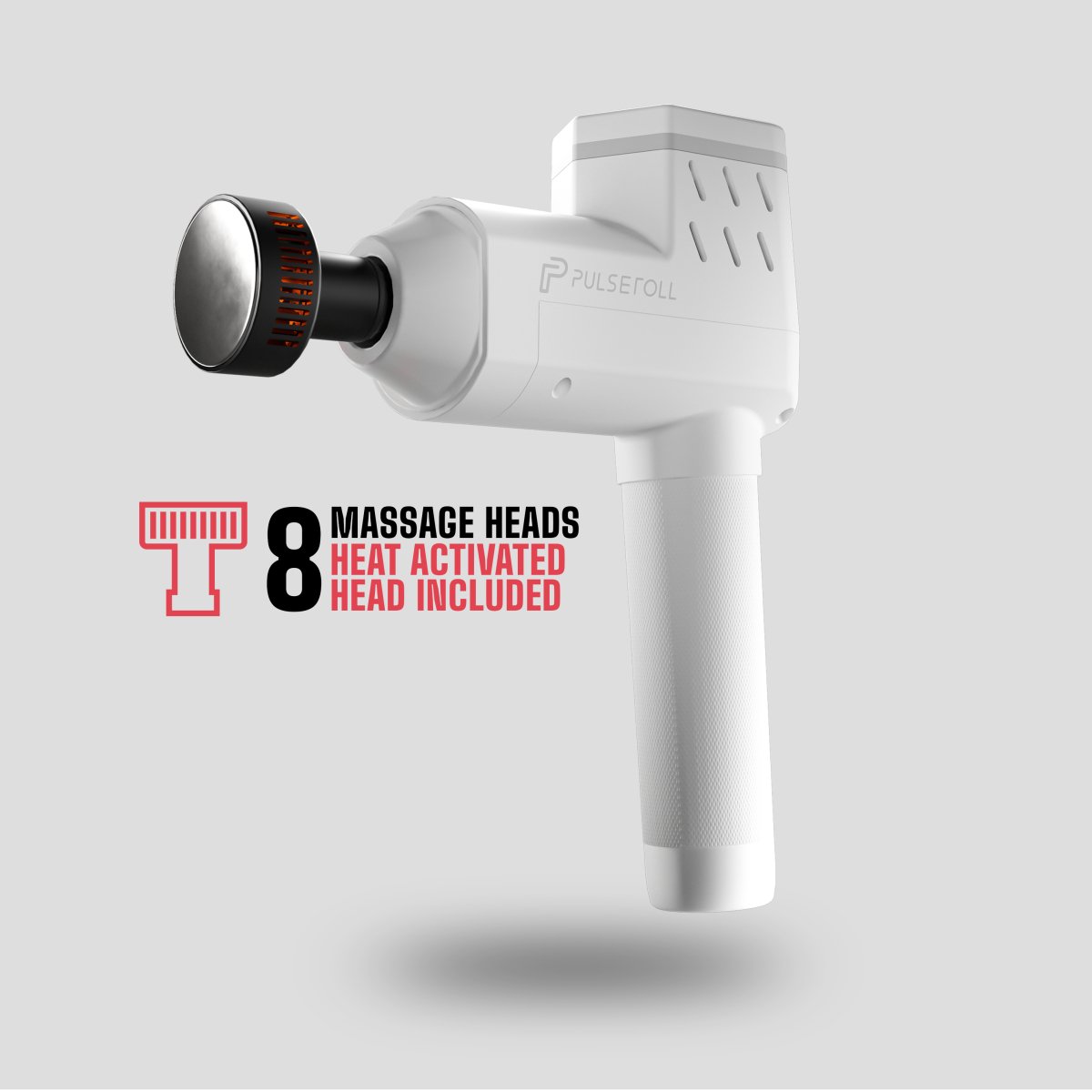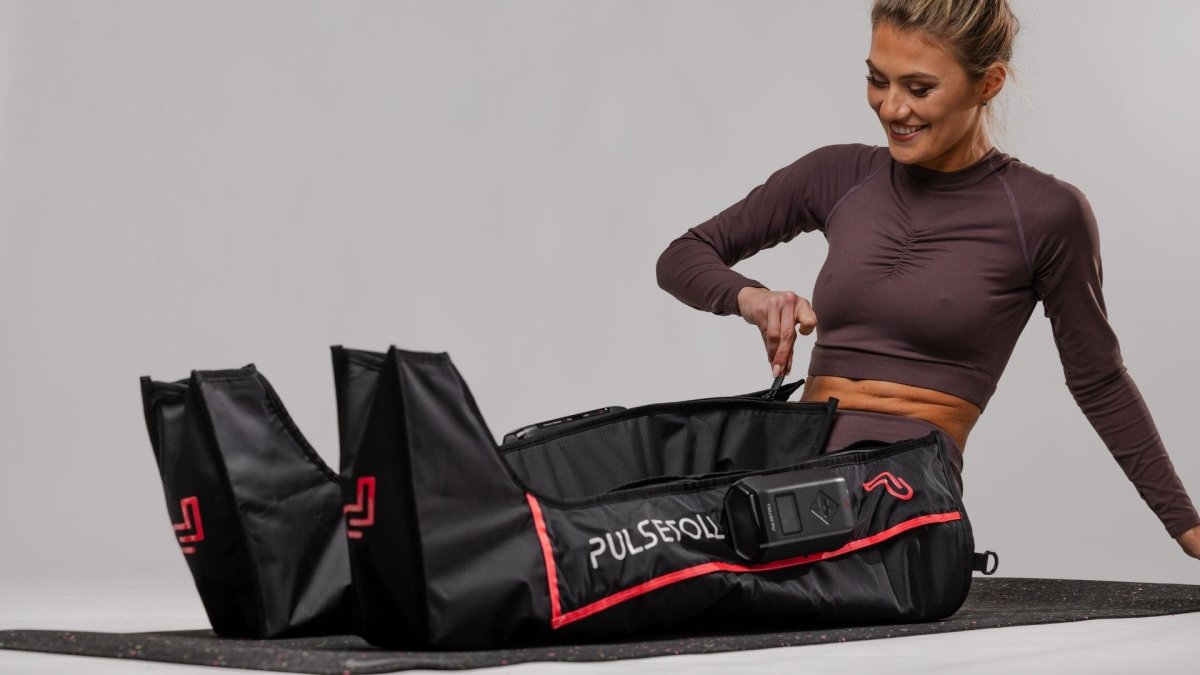Feeling sore after trying a new exercise or particularly tough workout is extremely normal. This is because your muscles aren’t used to the strain you’ve put them under, so the muscle fibres essentially tear and become inflamed. This is why you experience DOMS (explained below)! This can be a good thing but isn’t necessary for progress.
Recovery after training is an important part of your fitness routine. It enables the body to rebuild damaged muscle tissue and regain energy. It is important to know how to recover sore muscles faster, as you want to ensure your body and muscles are in the best condition.
As a leader in the massage gun space, we know how important recovery is and believe every person, whether a pro-level athlete or casual trainer, should know how to recover muscles faster.
If you’re wondering what helps muscles recover faster, read on for our pro tips on how to speed up your muscle recovery!
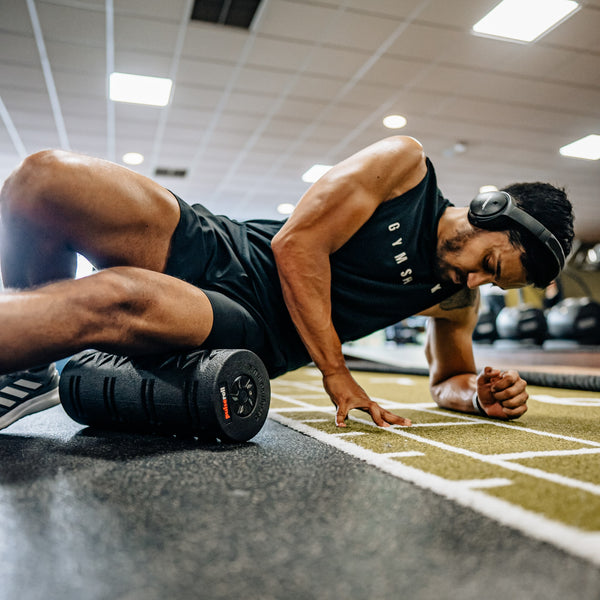
What Causes Sore Muscles?
Before heading towards sore muscle recovery tips, you must first understand what causes them. Muscle soreness is also known as Delayed-Onset Muscle Soreness (DOMS). It is usually caused after an intense workout. But how does it happen?
Here are some steps that can possibly lead to muscle soreness. It is important to know them before learning how to recover sore muscles faster.
-
When you do intense eccentric exercises, your muscles could be more likely to get sore. Eccentric exercises involve muscle extending and lengthening, which puts them under stress.
-
As a result of this stress, muscles may suffer from microtrauma.
-
Your muscles send a message to your brain that they are damaged and need repairing.
-
Your body begins the repair process. You might feel inflammation in your muscles.
-
If you don't work to reduce this inflammation, your muscles may become stiff and have a reduced range of motion.
-
Your muscles become tender and appear swollen. They might also feel exhausted, resulting in difficulty moving.
How To Recover Sore Muscles Faster - Quick Recovery Tips
To get your sore muscles back to their original state, you must follow a combination of different tips. Instead of sticking to one method, follow a well-planned recovery schedule. An integrated plan can lead to a quick recovery.
The following tips can be helpful for muscle soreness recovery.
Get More Sleep
How to recover sore muscles faster? Get enough sleep. This is straightforward. You need to get enough sleep to give your body time to recover, as not getting enough sleep could make you more injury prone. Aim for 7–8 hours a night, at least, to ensure maximum recovery time!
A good 7-8 hour sleep with pre-sleep protein ingestion promotes protein synthesis in the body. It allows your muscles to repair wear and tear in the body throughout the day. As a result, you can experience a speedy recovery.
Increase Protein Intake
Continuous research has shown that utilising protein products before and after a workout can help reduce muscle soreness. Try a whey protein shake for a quick and easy solution. You can have it before or after the workout.
In addition, you can also include protein-rich food in your diet. Meat, lentils, eggs, nuts, and other high-protein foods may help.
Use Ice Packs
Utilising ice packs is quite possibly the easiest and simplest way to reduce muscle soreness. By applying ice to the area, you will significantly ease the inflammation and soreness. Applying ice to the sore muscles decreases the body temperature and blood circulation in that area. As a result, it numbs the pain.
Make sure you do not keep the ice on the inflamed area for a long time. Instead, move it gently in a circular motion for a few minutes, then let it sit. Repeat the process after a few minutes. Icing the sore area three to four times a day will provide visible improvement.
Stay Hydrated
How to recover sore muscles faster? Keep them hydrated! Drinking water will help to rid the body of toxins and prevent dehydration. Try to aim for 2 litres a day. Maintaining the right amount of fluids in your body helps ease inflammation. Stay hydrated during and after workouts as well as throughout the day.
Stretch your Muscles
Stretching after a workout is quite a common practice, but it is worth remembering to also stretch on your rest days. It boosts the muscles' blood flow and prevents lactic acid build-up. When muscle fibres get good blood flow and oxygen, they recover faster.
This can help to reduce DOMS before they’ve even occurred! Do not overdo it. Stretching for a few minutes before and after a workout is enough.

Take a Cold Bath
Do you want to learn how to recover sore muscles faster in a relaxing manner? Take a cold bath. Immerse your body in a tub of cold water for a few minutes. This method is also known as cold water immersion. The cold should reduce inflammation and relieve pain.
While the initial dip may raise your heart rate and shorten your breath, trust us, the benefits if you can wait it out are immense.
Use Muscle Recovery Equipment
Muscle recovery equipment is very effective in recovering sore muscles faster. A great example of equipment that speeds up recovery is massage guns. For those wondering how to recover sore muscles faster, invest in a percussion massage gun. Massage guns use percussion therapy to get deep into the muscle by applying pulses. These pulses have a range of benefits, all revolving around recovery and performance.
Foam rollers are also popular among athletes. An improved take on the classic foam rollers are vibrating foam rollers. They use vibration technology to get deep into the muscle, so there is less need to physically roll – it’s more of a leaning motion from side to side while applying pressure.
Try a percussion massage gun, vibrating foam roller, or a mini massage gun for the most effective muscle recovery, similar to a sports massage!
Reduce Stress Levels
High stress levels can slow down the muscle recovery process. To recover sore muscles faster, you must take care of your mental well-being. You can try mindfulness techniques to reduce stress levels. It will keep your mind relaxed so that your body can focus on muscle recovery.
Get Regular Massages
Regular massages help ease tension in the muscles and break up scar tissue. By regularly treating yourself to a massage, you can help to prevent future injury. Regular massaging is good, but if you have sore muscles, it is better to get a deep-tissue massage.
Regular massages can sometimes be expensive. What is the alternative? You can use a massaging tool such as a foam roller easily at your home. Foam rollers work by breaking up knots and sore spots in the muscle by providing myofascial release. It basically speeds up muscle recovery by softening tissue and easing inflammation.
Compression Garments
Compression sleeves and socks might be new to many general gym goers, but some pro athletes swear by them. They work by helping your blood flow to circulate quicker, which helps injuries to heal more quickly and efficiently.
Factors Affecting Sore Muscle Recovery
Some people recover from sore muscles faster than others. It happens because everyone’s body reacts differently to injuries and stimuli. Besides that, there are some other factors also that affect your muscle recovery progress.
Now you know how to recover sore muscles faster, let's have a look at the factors that impact recovery, so you can further accelerate getting back to peak performance.
Sleep Quality
Sleep plays a significant role in repairing damaged muscles and recovering from injuries. It is important to get adequate sleep every day. Not only this, but you must also ensure to make your sleep comfortable.
The quality of your sleep is a determining factor in how quickly you recover from the pain. Poor quality or inadequate sleep hinders the natural recovery process. It affects the process of protein synthesis in the body. As a result, you may experience delayed muscle recovery.

Diet
You are what you eat. You might have heard this a lot of times. But you might not know that what you eat determines how fast you recover. Your body needs essential nutrients for recovery and growth.
If you're not fuelling your body, how is it meant to repair itself?
Eating a diet rich in nutrients like protein, zinc, and iron accelerates the recovery process. On the other hand, a diet deficient in these nutrients can result in delayed muscle recovery.
Age
Your body changes as you age. Your muscles grow strong up to a certain age and then start weakening. Recovery time also varies with age. As you grow old, it takes more time to recover.
You need to take some additional measures to ensure a quick recovery. Exercising daily and staying active improves your immunity. It also keeps your muscles active, so they do not become stiff in the first place.
Health Conditions
It is a no-brainer that good health translates into an easy and quick recovery. If you already have some health issues, such as cardiac or lung issues, you might experience prolonged recovery time.
During sickness, your body becomes weak. Resultantly, it takes more time to heal from wounds, injuries, and wear and tear.
Cortisol Level
Cortisol is an important determinant of sore muscle health. It performs so many important functions related to muscle recovery. It is anti-inflammatory and helps the body heal the damage and inflammation.
If you successfully manage the stress levels in your body, you can recover faster. The best way is to find an alternative exercise, such as swimming or running, to trigger the same stress levels.
How Long Will Sore Muscles Take To Heal?
The muscle fibres have to work to repair themselves, which can take a number of days. The recovery time depends on what you do to help them in the recovery process. You might have noticed that soreness starts the day after tough physical activity. If you do not take some recovery measures, it intensifies over time.

The healing time for muscle soreness depends on its intensity. Light soreness takes around 48 hours to recover. If the muscle damage is more intense, it can take up to 72 hours or even more.
What Food Helps In Faster Sore Muscle Recovery?
Food can play a significant role in recovering your sore muscles. How to recover sore muscles faster with food? Eating a healthy diet rich in protein and magnesium can help provide your body with the energy it needs. The following foods speed up the recovery process.
- High-protein food: Your muscles need protein for strength and growth. Meat, eggs, dairy, and other protein-rich sources are effective for boosting sore muscle recovery.
- 5-a-day: When trying to maintain a balanced diet, hitting your 5-a-day is a must. Fruit and vegetables include micronutrients which are necessary for recovery and performance.
- Fish Oil: The benefits of fish oil for muscle strengthening are a no-brainer. It contains Omega-3 fatty acids, which work wonders for muscular and joint pain. It reduces inflammation and accelerates recovery.
- Whole Grains: You must maintain an adequate magnesium level in your body as it helps relax your muscles and improves their flexibility. Whole grains can be a good source of magnesium.
- Supplements: To cater to the nutrient requirements of the body, you can take aid from supplements. You can take supplements packed with protein, magnesium, and potassium.
5 Best Exercises to do When You're Sore
Did you know that you can still work out when you have sore muscles? It does not imply a full-fledged workout. Some light-intensity active exercises (or "active recovery") can help relieve sore muscles.
Experts believe that active recovery is sometimes more effective than rest. It involves improving blood circulation through a low-intensity workout. The fresh blood flow brings oxygen and nutrients to muscles for a speedy recovery.
How to recover sore muscles faster with a workout? Have a look at the list of some effective exercises that can help recover sore muscles faster.
Yoga
Yoga can be an ideal workout option when you have sore muscles. It involves light stretching that can help with muscle soreness. Yoga is also helpful for improving the blood flow in your body without making you feel overwhelmed.

You may include yoga in your daily or weekly workout routine. Use it as a cool-down exercise to relieve post-workout stress.
Swimming
Swimming laps in warm water can be your best friend on sore muscle days. It is a great way to stay active without damaging your muscles. Swim for a good 10-15 minutes and take a break. You may continue more if you don't feel you're pushing yourself too far.
It is equally beneficial for beginners and professionals. Take a warm Epsom salt bath after swimming to get the maximum benefits.
Walking
You can choose between walking or easy hiking. It is an effective active recovery exercise. You might wonder how to recover sore muscles faster by walking. It improves the blood supply and helps your muscles get rid of stiffness. Go for a walk in the garden, and your sore muscles will thank you!
Cycling
Cycling is great for getting you moving and your heart pumping. It warms up the body and muscles and improves flexibility. You may use an outdoor or indoor cycle. Try to maintain the right posture and keep your speed slow.
If you go too fast, the soreness intensifies instead of improving. Use it as a recovery workout and avoid going too fast. Otherwise, you would be looking for ways to recover after cycling.
Stretching
Stretching is a great workout option when you have sore muscles. Use a resistance band or do some easy stretching without any equipment. Either way, it is beneficial. Do not try any new stretching exercise unless advised by a professional.
Begin slowly and gradually intensify when your body gets used to it. It might hurt a little bit in the beginning, but once your muscles start relaxing, it gets better. You can use a Vibrating Foam Roller to perform different lower back stretches.
All these exercises are good to do with sore muscles. They not only keep your body active but also help in faster recovery.
How to Recover Sore Muscles Faster-Mistakes To Avoid
Are you following the key recovery tips but still not getting desired results? There might be something wrong. The sore muscle recovery process can slow down due to some common mistakes in your routine, especially after intense exercise.
If you wish to get your muscles back in shape soon, avoid the following mistakes. It is as important as knowing how to recover sore muscles faster.
- Over-training: It is a popular belief that an intense workout leads to intense gains. If you over-train, it gives you nothing but aching muscles and slowed progress.
- Not resting enough: The more you train, the more rest your body requires. If you do not rest proportionally to your workout, you might put yourself in trouble.
- Intense Stretching: Stretching is good for relaxing your muscles, but too much of it can be dangerous.
- Poor Diet: Poor eating or hydrating habits can be a leading cause of delayed muscle recovery. Make sure you provide your body with the energy it requires to repair the damaged muscles. If you're feeling sore after a workout, try eating more carbs before and after the next one (such as sweet potatoes), as this fills up your glycogen stores and replenishes glycogen.
Wrapping Up
Recovering from sore muscles is not an overnight process. You need to follow the tried and tested tips to avoid getting it in the first place. If you know the tips about how to recover sore muscles faster, you can deal with them efficiently. Invest in high-quality muscle recovery tools to ensure the best muscle health.
Visit our shopping hub to check out the full product range to aid your muscle recovery!
Frequently Asked Questions
Should I stretch sore muscles?
You should gently stretch sore muscles to recover them faster. It deals with the stiffness of muscles that can intensify the pain. Gentle stretching can help improve the blood flow to the vessels. It acts as a shield against the build-up of lactic acid in the muscles. Avoid going too hard; it may lead to further injury or worsen the soreness.
What drinks help sore muscles?
Drinks rich in nutrients can help recover sore muscles. You can take protein shakes, warm milk, chocolate milk, and fresh juices. They boost your energy levels and benefit your recovery phase.
Does soreness mean muscle growth?
No, soreness does not always mean muscle growth. There can be several reasons for muscle soreness. Muscle growth can be one of them, but you cannot always associate soreness with growth.
Is muscle soreness good sometimes?
Yes, muscle soreness can be good sometimes if it is not prolonged. Muscle soreness and inflammation is sometimes a sign of repair. When muscles repair on their own, they are likely to grow stronger.
Is it OK to work out with sore muscles?
Yes, it is OK to work out with sore muscles as long as it is gentle. Light exercises can help speed up the recovery process. However, you must know how sore is too sore to work out. In case of intense soreness, stretch first before working out.






